
Introduction
Family support groups have emerged as pivotal elements in the health treatment landscape, offering transformative benefits for individuals facing mental health challenges and significant life changes, including substance use disorders (SUD). These groups stand at the intersection of emotional support, practical assistance, and cultural understanding, playing a crucial role in enhancing treatment outcomes. As more families become involved in care processes, exploring what makes these support systems effective is essential to grasp their value fully.
Understanding the Impact of Family Support in Mental Health Treatment
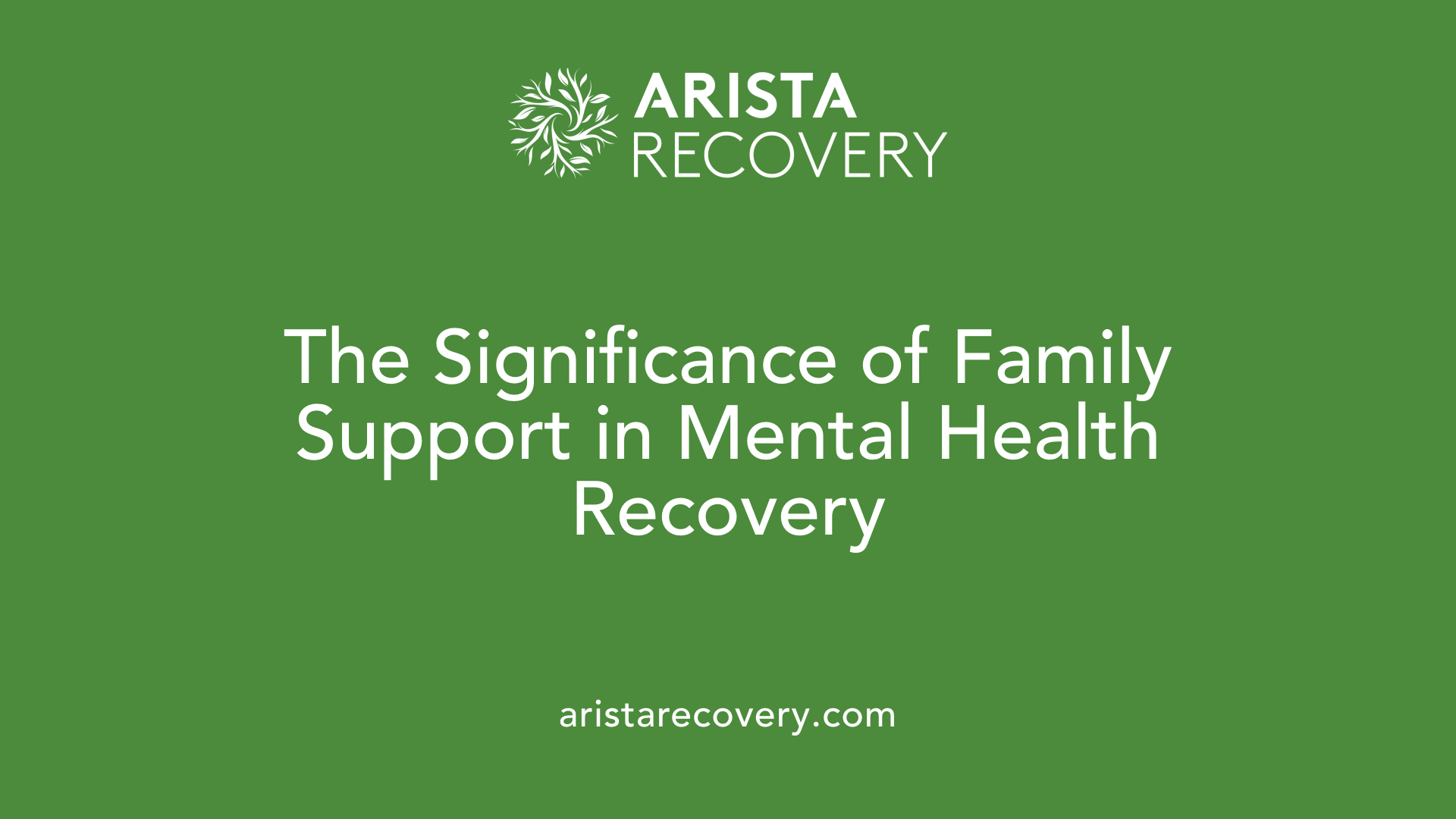
What role does family support play in an individual's mental health treatment journey?
Family support plays a crucial role in an individual’s mental health treatment journey by facilitating recovery from conditions such as depression, anxiety, addiction, and trauma. Research indicates that those with strong family connections often recover more quickly and develop better resilience against setbacks.
Emotional support and empathy from family members foster a safe environment, encouraging open communication about struggles. Furthermore, families can help establish stable routines and assist with practical tasks like medication management and therapy attendance, which significantly reduces stress for the individual.
Benefits of emotional and practical family support
The involvement of family members provides numerous benefits, including:
Moreover, family support has been shown to improve treatment outcomes, as individuals who engage with their families are more likely to complete programs and achieve sustainable recovery.
Dismantling stigma through family involvement
Family involvement is also vital in breaking down the stigma associated with mental health issues. By educating family members about mental health conditions, stigma is reduced, and support is enhanced. This not only strengthens familial bonds but also fosters an environment conducive to healing.
Access to a supportive family environment leads to improved self-esteem and emotional well-being, further propelling the individual's treatment journey. Involving families creates a community of understanding that uplifts all involved, making family support an integral component of effective mental health treatment.
Enhancing Health Outcomes Through Family Engagement
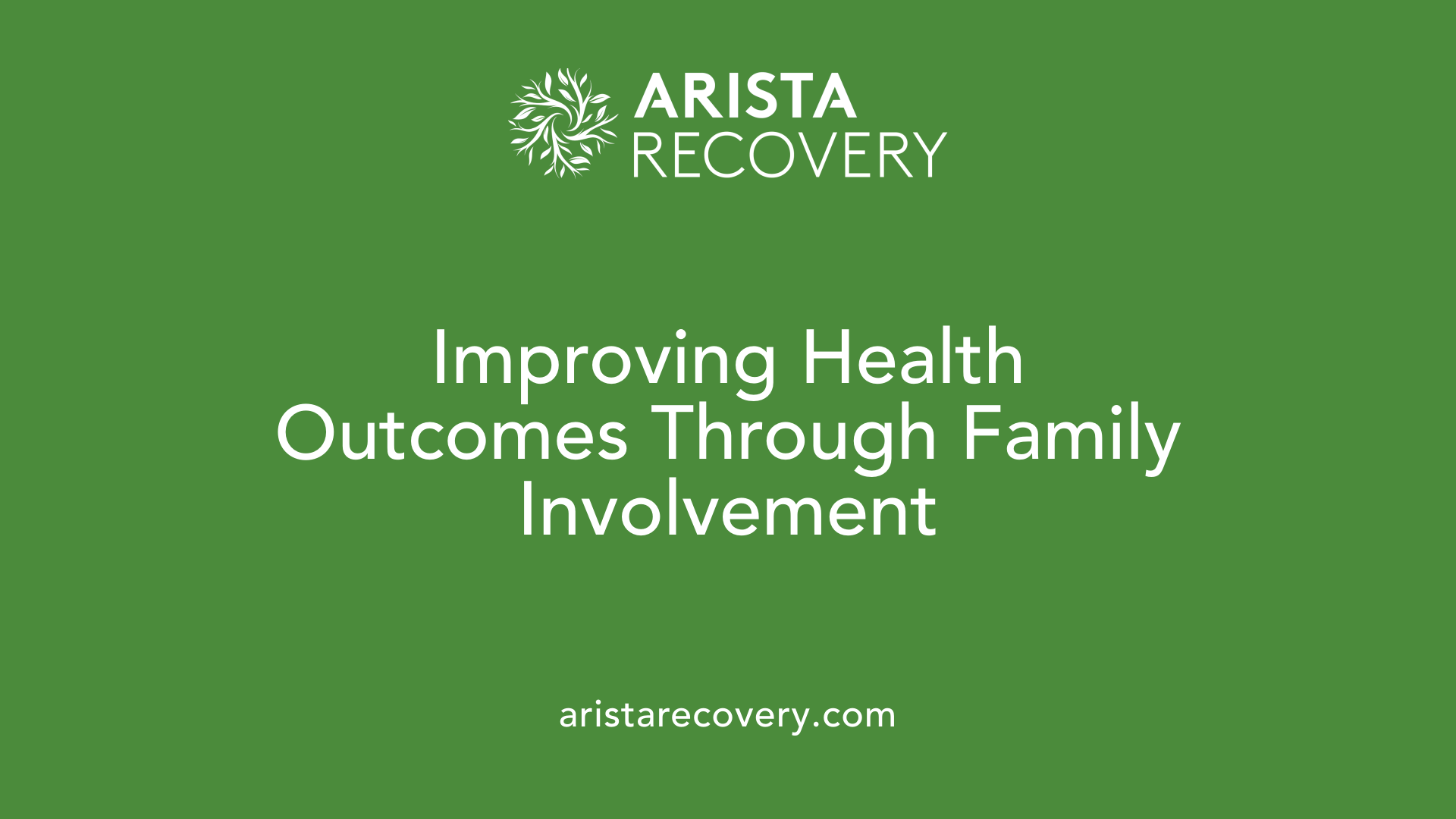
How can family involvement in treatment improve health outcomes?
Family involvement in treatment can significantly improve health outcomes by enhancing medication adherence and supporting chronic disease management. With over 60% of older Americans relying on unpaid caregivers, typically family members, their engagement is crucial for effective patient care.
Creating a patient-centered care plan that involves family helps align treatment goals and facilitates timely interventions, leading to superior health outcomes.
Examples of improved health outcomes with family involvement
Studies show that caregiver involvement leads to remarkable benefits. For instance, data from a comprehensive examination involving veterans with serious mental illness revealed that increased family participation notably improved patient outcomes—reducing symptoms and promoting recovery.
Here are a few key findings on family engagement:
FindingsImpactOutcomeIncreased family participationReduces patient symptomsImproved recoveryInvolvement in treatment planningEnhances health literacyLower hospitalizationsSupport groups for familiesProvides emotional validationReduced feelings of isolation
Engaging family members not only improves the health of patients but also strengthens relationships within the family, paving the way for a resilient support system that nurtures recovery.
Exploring Support Group Varieties
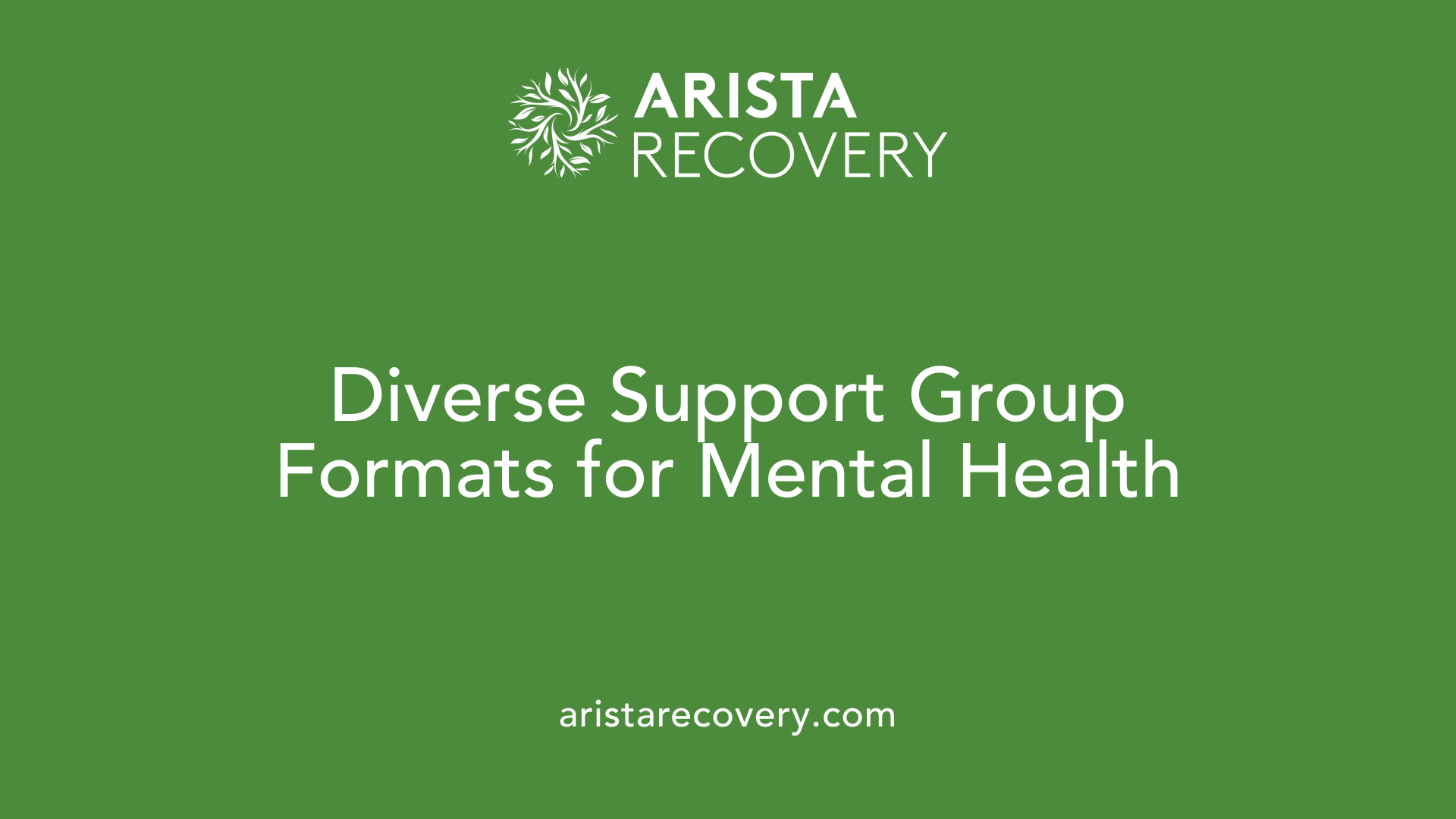
What are the different types of support groups available for mental health?
Support groups play a vital role in mental health care, offering various formats and focuses to meet diverse needs. Here are some common types:
Support groups can meet in various formats, such as in-person gatherings, teleconferences, or online platforms, offering flexibility for participants to engage in ways that suit them. Each type of support group contributes uniquely to enhancing emotional well-being and coping strategies for those involved.
Unveiling the Benefits of Support Groups
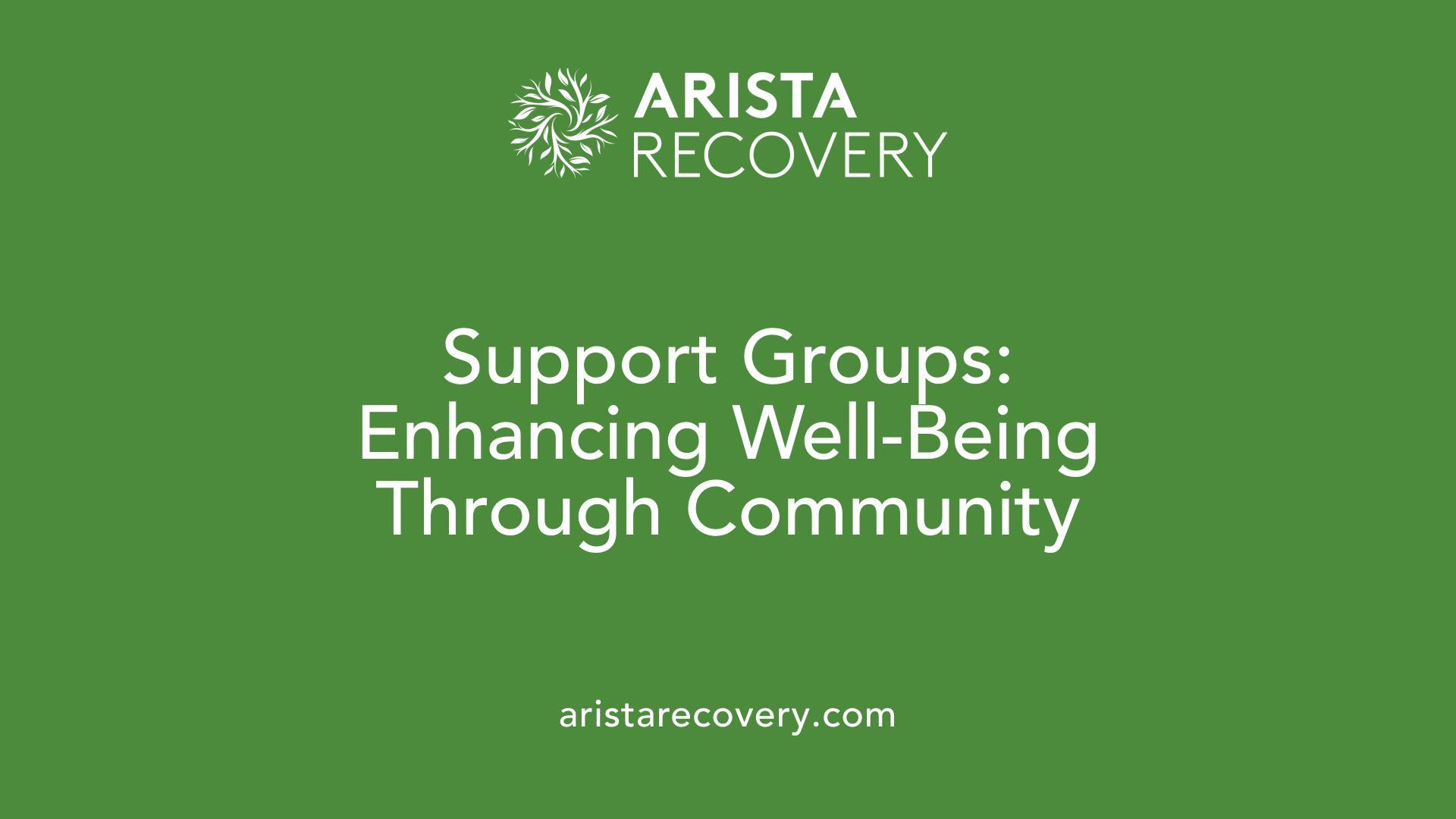
What are the benefits of support groups for mental health?
Support groups for mental health offer numerous advantages that significantly enhance individual well-being. These groups create a sense of community and belonging, effectively reducing feelings of isolation and loneliness. Members often find solace in sharing their experiences with others who understand the nuances of their struggles.
Emotional support is one of the core benefits of support groups. They connect individuals with peers who provide empathy and validation, which is vital during challenging times. This connection helps participants develop enhanced coping skills as they learn practical strategies from shared knowledge and experiences.
Moreover, support groups empower individuals, providing them with a greater sense of control over their wellness journey. Engaging with others fosters lasting connections that encourage ongoing support beyond the group sessions.
Lastly, support groups serve as safe spaces for open discussions, allowing members to express emotions and alleviate burdens without judgment. This environment not only encourages self-care practices but also builds resilience among participants, making recovery more achievable.
Community and empowerment through support groups
In essence, support groups foster a network of relationships that promote healing and growth. They help individuals realize they are not alone, instilling hope and encouragement. By coming together with others facing similar challenges, members benefit from shared insights that empower them to make informed choices regarding their mental health.
Additionally, the interactive nature of these groups cultivates an atmosphere of mutual support, reinforcing the emotional bonds among participants. This collective strength can bolster recovery efforts and contribute to more favorable treatment outcomes, making the role of support groups increasingly significant in mental health care.
Managing Health Challenges: The Role of Family Support Groups
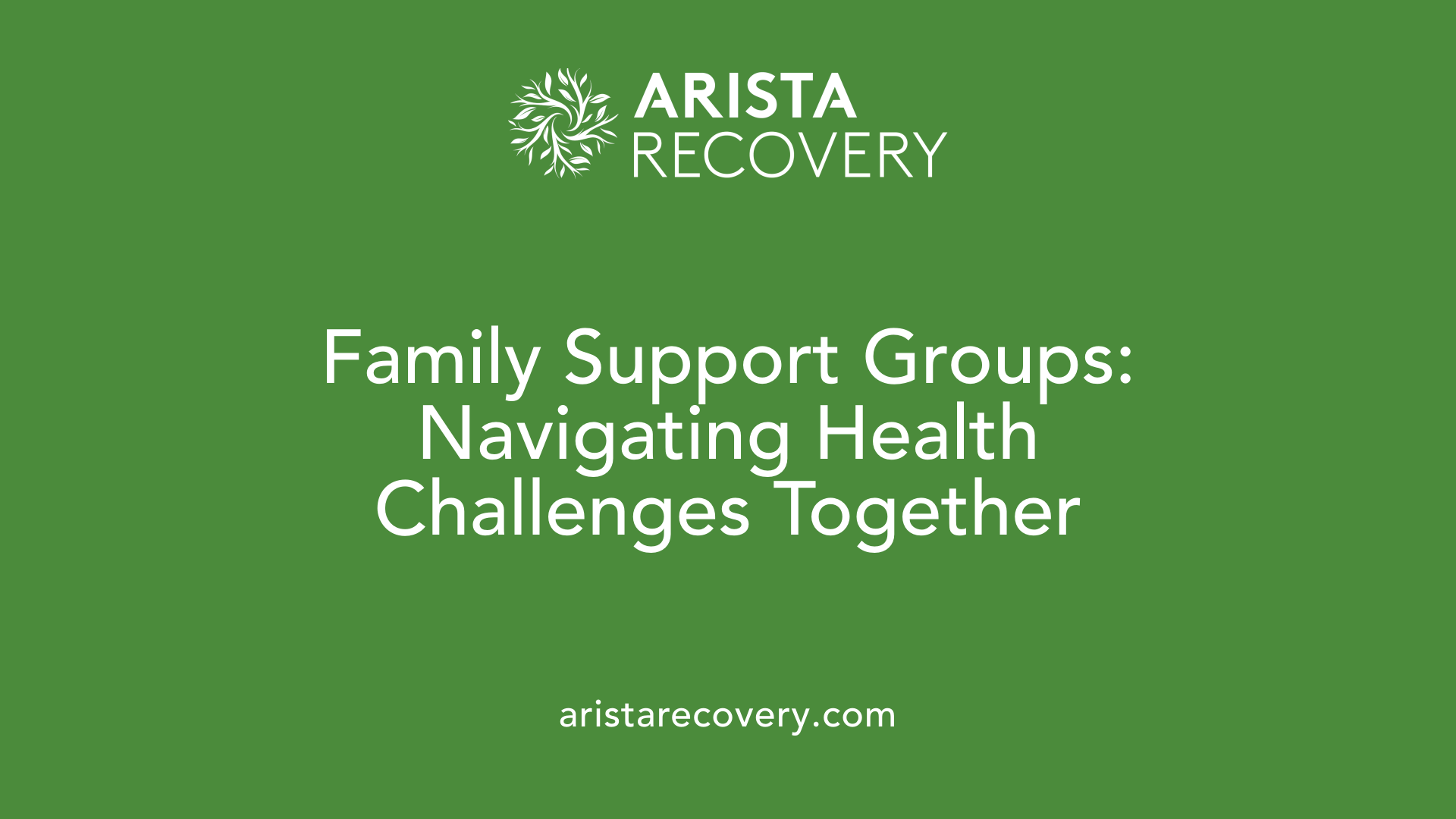
How do support groups help families manage health challenges?
Support groups are instrumental in supporting families dealing with health challenges. They create a safe environment where individuals can freely share their experiences and feelings, which significantly alleviates the isolation often felt during difficult times. Members are able to connect with others who are navigating similar circumstances, fostering a sense of community.
In these groups, participants can learn invaluable coping strategies and self-care techniques that aid in their journey. This exchange of knowledge and emotional support enhances their ability to manage stress and improve their mental well-being.
Different types of support groups exist, each catering to varied needs:
Type of GroupFocus AreaBenefitsPeer-led Mutual Support GroupsShared personal experiencesEmotional relief and mutual understandingProfessional Therapy GroupsClinical mental health focusGuidance from trained professionals promotes recoveryEducational WorkshopsHealth literacy and skills developmentKnowledge boosts confidence in managing health issues
Support groups play a vital role not just for individuals, but also for families, as they empower members to engage collectively with their health challenges, thereby reinforcing relational ties and enhancing overall well-being.
Navigating the Pros and Cons of Support Groups
What are the strengths and limitations of support groups?
Support groups play a critical role in the recovery process for individuals facing mental health challenges. These gatherings provide a safe environment for sharing experiences, offering emotional support, and developing coping strategies.
Strengths of Support Groups
Despite these advantages, support groups can have limitations:
What strategies can maximize effective participation in support groups?
To enhance participation and benefit from support groups, consider the following strategies:
Incorporating family members into support networks has been shown to lead to substantial benefits in treatment outcomes and overall emotional well-being. By addressing the strengths and limitations of these groups, participants can make the most of their experiences and contribute positively to their recovery and that of their loved ones.
Leveraging Family Support for Effective Substance Use Disorder Recovery
Investigating the importance of family support in recovery processes, particularly for substance use disorders (SUD).
Family support is crucial in the recovery process for individuals with substance use disorders (SUD). Research indicates that support from family members significantly increases the likelihood of successful recovery. Families play an essential role by facilitating higher engagement and retention in treatment programs, thereby helping individuals stay committed to their recovery goals.
Here are some key ways family involvement contributes to positive treatment outcomes:
Involvement of family in treatment has been shown to directly improve outcomes, such as higher rates of treatment completion and sustained recovery. As families engage in the recovery process, they also help foster a stronger relational dynamic, allowing for open discussions about struggles and promoting accountability in treatment goals.
The Psychological and Practical Support of Families in Recovery
What is the importance of family involvement in mental health care?
Family involvement in mental health care is crucial as it leads to improved clinical outcomes, including lower risks of hospitalization and relapses, by fostering an environment of encouragement and support. Family presence provides emotional sustenance and security, facilitating the patient's adherence to treatment plans and improving overall well-being.
A study found that individuals with mental health issues who had family support were better equipped to manage their conditions. Family members play an essential role by offering emotional validation and understanding, helping individuals feel less isolated during their struggles. This emotional support can motivate patients to overcome challenges during recovery, with family members celebrating victories and assisting during setbacks.
How does practical support aid in managing recovery?
Practical support from family, such as assisting with daily activities or accompanying loved ones to therapy, allows individuals to focus on their recovery without being overwhelmed by everyday tasks. By providing this crucial support, families help to create a nurturing environment that fosters open communication and mutual respect.
In what ways does family support reduce distress and isolation?
Participation in support groups not only benefits patients but also their families, as these groups provide a space for shared experiences. Families connect with others in similar situations, which helps reduce feelings of isolation and builds a safety net of emotional support. This community aspect is vital in nurturing relationships, which are crucial for maintaining motivation and accountability in treatment.
How can families improve communication for treatment success?
Improving communication is essential for recovery and can be executed through family therapy or support groups. Engaging family members in treatment not only helps family dynamics but also contributes to better treatment outcomes. Studies show that patients who involve their families are more likely to complete their treatment programs and manage their conditions more effectively. By enhancing communication skills, families can help identify unhealthy patterns and support their loved one in ways that encourage positive change.
Family Support: Empirical Evidence and Treatment Outcomes
What does research say about family support and treatment outcomes?
Numerous studies highlight the significant role family support plays in improving treatment outcomes for individuals with various health conditions. For instance, research shows that caregiver involvement leads to reductions in hospitalization and relapse rates for patients dealing with mental health issues. In a study of over 200 veterans suffering from severe mental illness, it was found that increased family participation not only reduced symptoms but also enhanced recovery.
Furthermore, families often help individuals with substance use disorders (SUD) recognize unhealthy behaviors and provide the emotional support necessary for effective treatment engagement. These benefits demonstrate that family members, when involved, can help improve retention in treatment programs and minimize negative consequences associated with substance use.
How does empirical evidence reflect family influence on treatment?
The impact of family on treatment outcomes is not just anecdotal; it is backed by empirical research. A comprehensive review of 16 clinical trials indicated that integrating significant others into SUD treatment programs yields a 6% reduction in substance use and improved recovery results that persist for up to 18 months post-treatment.
Additionally, family-based therapies—like Multidimensional Family Therapy and Behavioral Couples Therapy—are tailored to utilize family dynamics to enhance recovery efforts. Findings also suggest that families who are educated and involved can create a nurturing environment that fosters open communication, ultimately leading to better emotional stability and treatment success.
Area of FocusFamily Involvement BenefitsRelated FindingsMental Health OutcomesReduced symptoms and enhanced recoveryLower relapse and hospitalization ratesSubstance Use Disorders (SUD)Improved treatment engagementHigher retention in programs, reduced substance useSupport GroupsEmotional validation and coping strategiesImproved self-esteem, reduced feelings of isolationType of TherapyFamily dynamics integrationBetter recovery outcomes, lasting benefits
In summary, robust evidence supports the notion that family involvement is crucial for improving health outcomes, emphasizing a collaborative approach to treatment.
Community Programs Empowering Families
Community Resources for Family Involvement
Community programs are vital in promoting family involvement in patient care. They offer various resources that enhance communication between healthcare providers and families, improving overall treatment outcomes. For instance, educational workshops provide family members with crucial knowledge about mental health and substance use disorders. This education fosters empathy and understanding, enabling families to support their loved ones effectively.
Additionally, families can benefit from access to support groups tailored to their needs. These groups facilitate emotional sharing and coping strategies, lessening feelings of isolation. They serve as platforms for caregivers to connect, learn from one another, and gain insights from shared experiences.
Programs and Initiatives for Family Support
Numerous community initiatives focus on integrating family support into treatment processes. For example, family therapy opportunities allow for improved communication and conflict resolution skills among family members. Programs like Multidimensional Family Therapy and Behavioral Couples Therapy specifically include loved ones in the treatment journey, ensuring a collaborative approach to recovery.
Furthermore, peer support programs enhance community connections, fostering supportive networks for families. These initiatives aid caregivers by providing critical resources, emotional support, and strategies that enhance their well-being alongside their loved ones'. The combined involvement of families in treatment not only improves recovery outcomes but also creates a nurturing environment vital for sustaining long-term health.
Practical Strategies for Family Support in Treatment Processes
Practical Strategies to Improve Family Involvement
Engaging families in treatment is vital for better mental health and recovery outcomes. Some practical strategies include:
Effective Family Communication
Healthy communication is key to effective family involvement in treatment. Consider the following:
Managing Treatment Engagement
To improve engagement in treatment:
By implementing these strategies, families can significantly impact the recovery process, enhancing both patient and caregiver well-being.
Conclusion: Building Stronger Support Systems
The evidence underscores the pivotal role of family support groups in enhancing treatment outcomes across a spectrum of health challenges, particularly for those dealing with mental health and substance use disorders. Such support not only contributes to better recovery rates and reduced relapses but also actively nurtures a sense of community and reduces stigma attached to these conditions. By empowering both individuals and their families through shared experiences and gained insights, support groups reinforce the recovery process and facilitate a better understanding of health conditions and management strategies. As healthcare continues to evolve, the integration of family support into treatment plans should be seen as essential, offering invaluable emotional, informational, and practical support to those embarking on their recovery journey.
References
- Family Involvement in Treatment Can Improve Outcomes
- Support groups: Make connections, get help - Mayo Clinic
- The benefits and challenges of established peer support ...
- The Critical Role of Family Support in Addiction Recovery
- The Role of Family Support in Mental Health Recovery
- How Family Support Groups Are an Essential Part of Your Loved ...
- The Role of Family in Mental Health - Columbia Associates
- Mental Health Coping Resources for Children and Families | SAMHSA
- The Power of Family in Residential Treatment for Recovery
When mental health challenges and addiction intersect, it can feel isolating. At Arista, we offer compassionate, evidence-based, and trauma-informed care to help you heal, grow, and move forward.
How Family Support Groups Help Improve Treatment Outcomes
You’re not alone in this.
When mental health challenges and addiction intersect, it can feel isolating. At Arista, we offer compassionate, evidence-based, and trauma-informed care to help you heal, grow, and move forward.
Support that moves with you.
You’ve taken a brave first step. At Arista Recovery, we’re here to help you continue with best-in-class care designed for long-term healing and support.
.webp)






